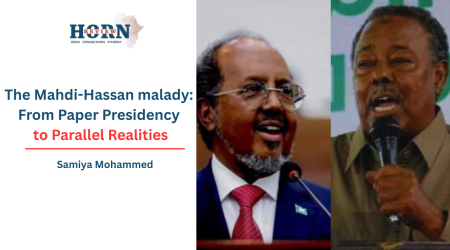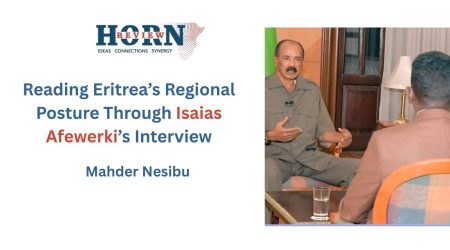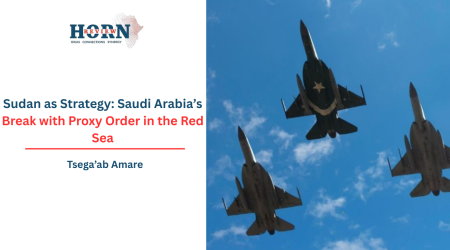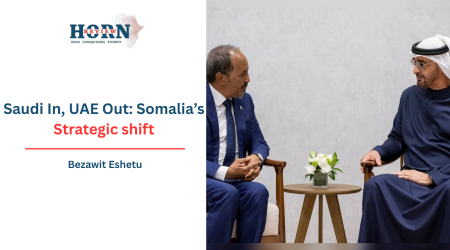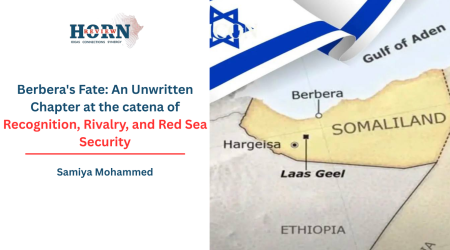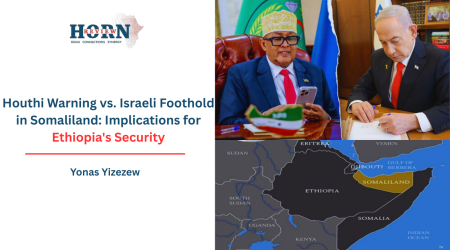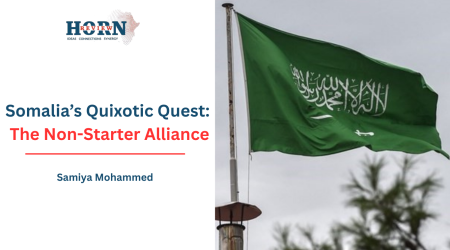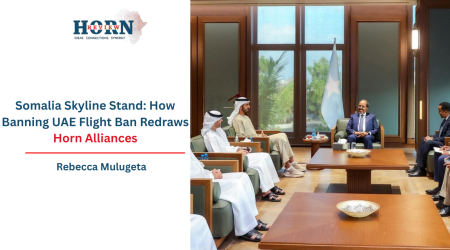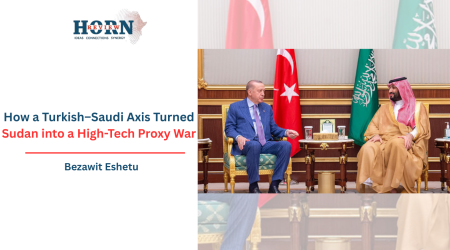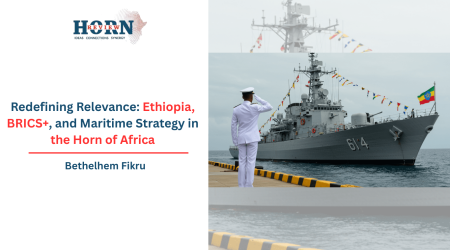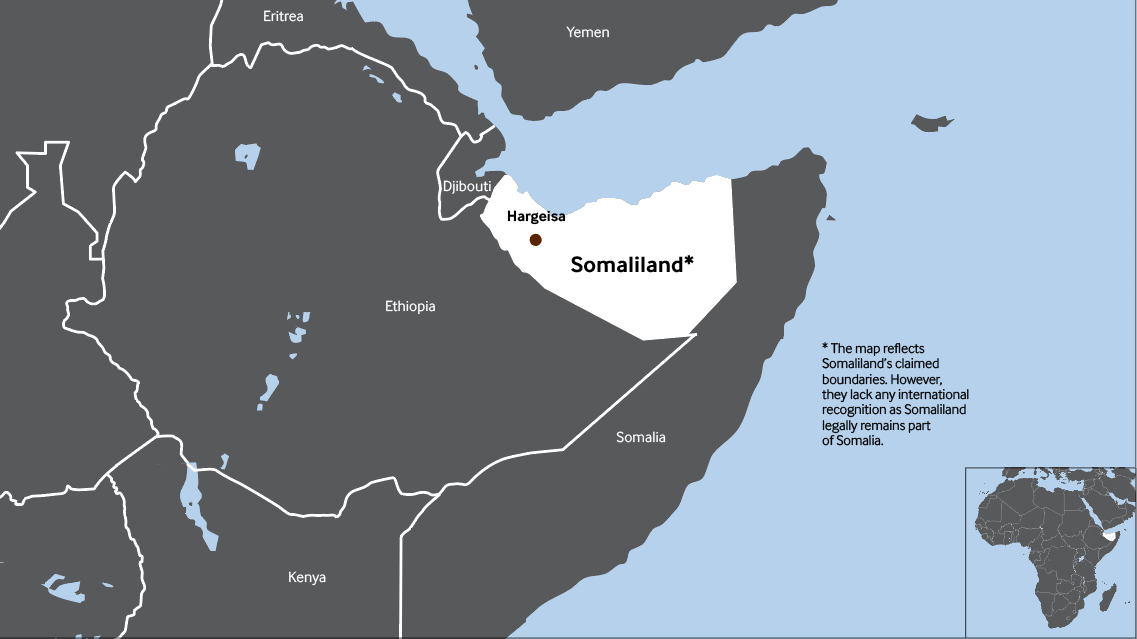
1
Apr
Somalia’s Fragmentation and Somaliland’s Bid for Recognition: A New Proxy War in the Horn of Africa?
Somalia’s political landscape is mainly characterized by internal divisions of competing clans and de facto states for sovereignty and claims power by different militant groups. This situation provides a complex political picture within the broader Horn of Africa dynamics. Various questions arise regarding Somalia’s unsettled situation, with a primary concern: Will the name Somalia be erased shortly after Somaliland’s recognition?
Looking at Somalia’s history, there has never been a permanent centralized authority, even before colonization. The country’s primary challenges have been the self-determination of its people and the territorial integrity of other states. A high degree of moral decay in Somalia has been evident due to continuous military coups, fragile national cooperation, and the ambitions of militant groups.
The legitimization process of statehood in de facto states further complicates Somalia’s current situation. Various self-proclaimed states within Somalia, such as Khatumo, Puntland, Galmudug, Hirshabelle, Southwest State, Jubaland, and Somaliland, possess varying degrees of administrative functionality. Somalia remains the only UN member state without an effective government. However, in 2012, the transitional period in Somalia ended, and a new governing body emerged. Initially, there was hope and optimism due to the election of a new president and prime minister, who were historically uninvolved in Somalia’s civil war.
This optimism, however, did not last long. Armed groups like Hizbul Islam and Al-Shabaab began waging war, competing for power vacuum in the absence of a strong central government. Ethiopia intervened to support the federal government during this crisis. Historically, Ethiopia has played a crucial role in Somalia, including taking care of President Madobe through an operation led by Colonel Gebre Egziabiher and G. Dilla. Ethiopia deployed thousands of soldiers, and approximately ten thousand Ethiopian forces remain in Somalia today.
The recent developments regarding Somaliland’s recognition by the USA and other nations, including Ethiopia, have sparked intense debate. When examining the historical relationship between Somalia and Somaliland, Somaliland’s quest for recognition has merit. Somaliland was a de facto state before colonization and became independent after 75 years of British rule. On June 26, 1960, an agreement and exchange of letters between the government of Somaliland and the United Kingdom of Great Britain and Northern Ireland marked Somaliland’s attainment of independence.
According to the UN Charter, Article 102, a registered treaty is required for a legal union between nations. However, no signed treaty or legal ratification exists between Somalia and Somaliland. This makes Ethiopia’s and the US’s bilateral relationships with Somaliland legally justifiable. After both regions gained independence from Britain and Italy, consequently, Somaliland’s parliament rejected the Act of Union in 1961. Further evidence showed that, including the Montevideo Convention of 1933 and the Vienna Convention of 1969, suggests that Somalia lacks a defined territory and that the union re was never legally ratified. In addition to this, Somaliland has conducted six free elections without formal recognition from Somalia or any other states, largely due to the weak and deeply corrupt government in Mogadishu. Given these facts, Somaliland seeks re-recognition rather than new recognition.
Ethiopia and Somaliland have a mutually beneficial relationship, but the USA’s interests and bilateral agreements with Somalia are more complicated. Although Somaliland does not share borders with the USA, the USA is involved in the region because of its strategic dominance in the Horn of Africa and its desire to increase its military presence; given its military base in neighboring Djibouti, the USA is using this opportunity to counter the influence of China and Russia; the alliance may also be influenced by Somalia’s growing alignment with China, which has no interest in recognizing Somaliland because it conflicts with the USA over Taiwan. This dynamic raises concerns about a potential proxy war in the Horn of Africa, similar to what has occurred in Ukraine.
Despite the USA spending billions of dollars in Somalia, the Mogadishu government has shown its alignment with China, particularly by opposing Taiwan’s elections. In response, the US government has cut aid to Somalia and shifted its priorities toward Somaliland. Somaliland offers the USA strategic advantages, such as its 500-mile coastline along the Gulf of Aden. However, American dominance in the region does not necessarily guarantee peace and stability in the Horn of Africa.
In the current fiscal year, Somalia received $1.2 billion in aid from the USA, but there are rumors that Somaliland is not benefiting from the assistance given to the Mogadishu-based central government. John Norris, Executive Director of the Sustainable Security and Peacebuilding Initiative at the Center for American Progress, has questioned how much has been the world spent on Somalia since 1991. Another statement from the Center for American Progress, released a statement titled “20 Years of Collapse: The Cost of Failure in Somalia,” highlights the declining diplomatic relations between the two countries. Even though the USA provided Somalia with a $1.4 billion debt relief package, the Somali central government continues to strengthen its ties with China, contradicting former President Trump’s “America First” policy. In light of this reality, the USA may choose to solidify relations with Somaliland, a partner that is ideologically closer than Somalia, to preserve its foothold in the crucial region of interest, namely that of Berbera.
Berbera port is also considered a critical chokepoint for the USA to realize its interests such as close to the Gulf of Aden and the Indian Ocean, which is on the other side of Yemen, a hosting ground of Houthi militants and Al-Qaeda. Approximately 9% of the world’s petroleum trade and a significant portion of Euro-Asian commerce pass through this region.
China’s special envoy for the Horn of Africa, Xue Bing, recently arrived in Somalia to enhance bilateral cooperation. The Federal Republic of Somalia has confirmed its alliance with Beijing and its commitment to the “One China” policy, recognizing Taiwan as part of China’s provenience. In contrast, Somaliland has pursued a wise diplomatic strategy by engaging with democratic nations such as Ethiopia and the USA and recognizing Taiwan as an emerging power. This informal diplomatic engagement seems to be crucial and could lead to a long-lasting strategic relationship. Such a relationship would benefit the USA by countering China’s Belt and Road Initiative in the Horn of Africa through control of a port free from Chinese influence. Partnering with Ethiopia presents another viable option for Somaliland.
Given these rising tensions, Somalia’s fate hangs in the swing balance. As states like Jubaland and Puntland grow stronger and seek further independence from Mogadishu’s weak central government, the possibility of Somalia becoming a proxy battleground as global superpowers increase. Unless the central government plays a crucial role in unifying its territories, de facto states will continue seeking informal relationships with global powers. This situation could lead Somalia’s path as a fragile state nothing but becoming a proxy war state, much like other war-torn nations like Ukraine. Furthermore, history shows that American global supremacy does not guarantee stability and security in the Horn of Africa, Afghanistan stands as a clear example of this reality.
By Surafel Tesfaye, Researcher, Horn Review

